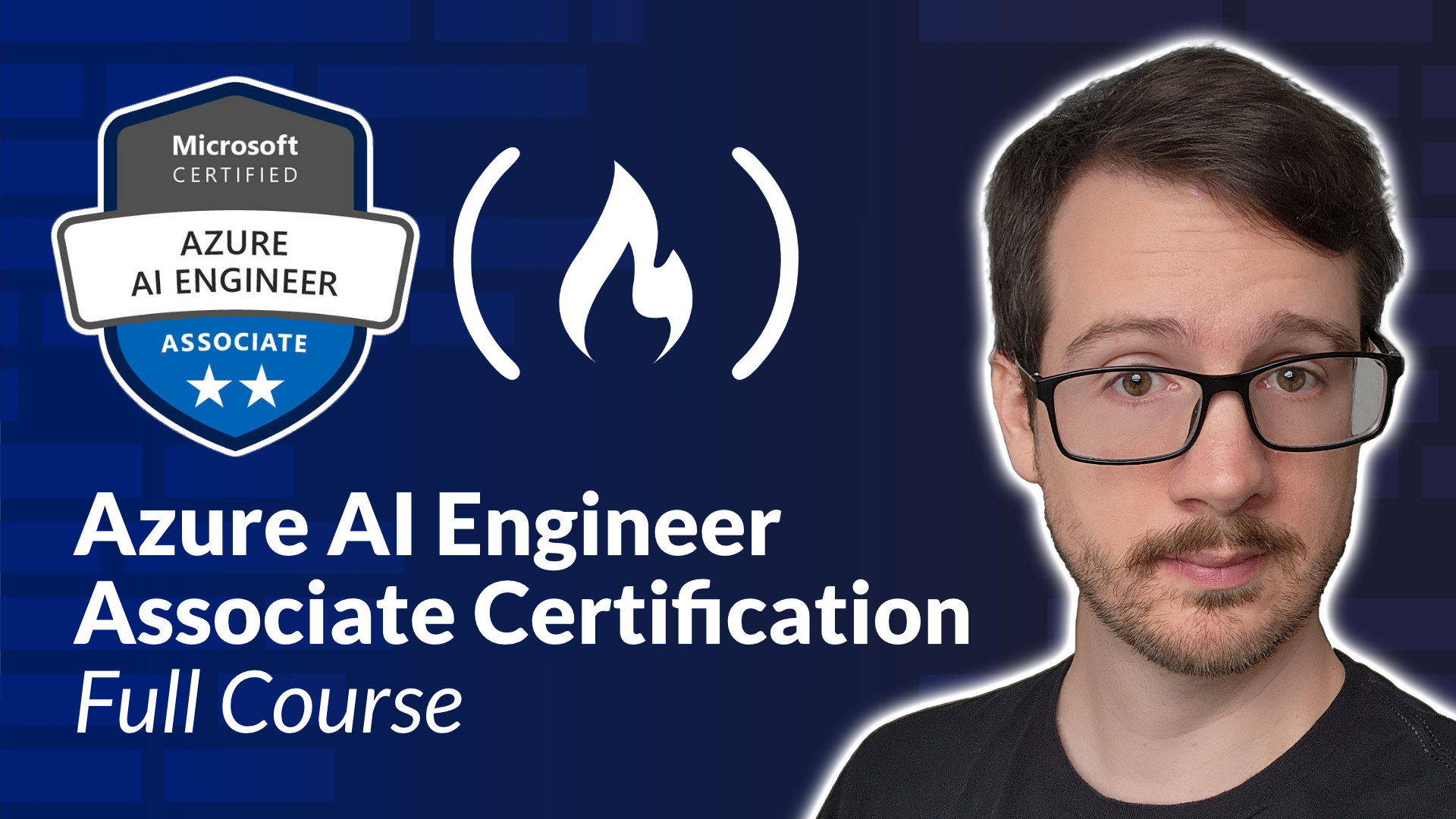
Are you ready to take your AI skills to the next level and earn the Azure AI Engineer Associate Certification (AI-102)? We just posted a comprehensive course on the freeCodeCamp.org YouTube channel that is designed to help you prepare for and pass this certification exam.
This course offers an in-depth exploration of Azure AI services, Azure AI Search, and Azure OpenAI, equipping you with the knowledge and skills needed to excel as a Microsoft Azure AI engineer. Andrew Brown of ExamPro developed this course.
Course Overview
The course is structured to guide you through the essential components of the Azure AI Engineer Associate Certification. It begins with an introduction and an exam guide breakdown, setting the stage for a deep dive into the technical and practical aspects of Azure AI.
Here are the key sections of the course:
Setup: Learn how to set up your development environment and get acquainted with OpenAI Studio and AI Studio.
Gen AI Primer: Understand the differences between AI and Generative AI, foundational models, large language models, and the intricacies of transformer architecture, tokenization, embeddings, and attention mechanisms.
ML and AI Concepts: Explore supervised and unsupervised learning, neural networks, deep learning, and the tools like Jupyter Notebooks that facilitate AI development.
Responsible AI: Learn about the principles of responsible AI, including fairness, reliability, privacy, inclusiveness, transparency, and accountability. Learn about the Responsible AI Standard V2 and how to apply these guidelines in real-world scenarios.
Azure AI Services: Gain hands-on experience with Azure AI Services, including setup, diagnostic logging, and the differences between Azure AI Services and Azure AI Studio. Explore Azure OpenAI Service models, deployment types, and prompt engineering.
Azure AI Search: Discover the capabilities of Azure AI Search, including RAG, document cracking, HNSW, and semantic ranking.
Text Analytics and Computer Vision: Learn about natural language processing, sentiment analysis, PII extraction, and the capabilities of Azure AI Vision Studio.
Custom Vision and Document Intelligence: Understand custom vision project types, features, and object detection, as well as Azure AI Document Intelligence and form recognition.
Speech API and AI Video Indexer: Explore the Speech API and AI Video Indexer to enhance your AI solutions with audio and video processing capabilities.
Content Safety and Language Understanding: Implement content moderation solutions and explore language understanding with LUIS and QnA Maker.
Face Service and Cleanup: Learn about the Face Service and how to effectively clean up your AI projects.
Certification Overview
As a Microsoft Azure AI engineer, you will be responsible for building, managing, and deploying AI solutions that leverage Azure AI. This role involves participating in all phases of AI solutions development, from requirements definition and design to deployment, integration, and maintenance. You will work closely with solution architects, data scientists, data engineers, and other specialists to build secure, end-to-end AI solutions.
The skills measured in the certification include planning and managing an Azure AI solution, implementing content moderation, computer vision, natural language processing, knowledge mining, document intelligence, and generative AI solutions.
Get Started
To start your journey towards becoming an Azure AI Engineer Associate, watch the full course on the freeCodeCamp.org YouTube channel (14-hour watch).